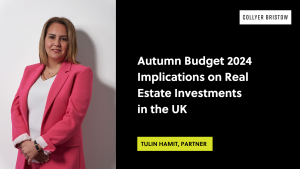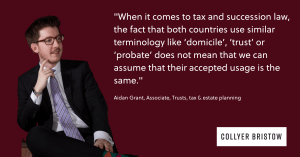- International trusts, tax and estate planning

Longer Reads
Harry and Meghan ceasing to be UK resident
To what extent are Harry and Meghan still exposed to UK tax as non-UK
residents?
3 minute read
Published 26 February 2021
Key information
- Specialisms
- Private Wealth
As a couple the Duke and Duchess of Sussex garner significant public attention.
However, to the UK tax adviser, they provide a perfect backdrop against which to
frame the UK residency and domicile rules, and they help elucidate an important
issue: to what extent are Harry and Meghan still exposed to UK tax as non-UK
residents?
Income tax and capital gains tax
UK residents are liable to UK tax on their worldwide income and gains as they arise.
This general rule is subject to the availability of the remittance basis of taxation; an
alternative which UK residents who are neither UK domiciled nor deemed domiciled
(a category into which the Duchess of Sussex likely fell) are permitted to access.
Under the remittance basis, a UK resident only pays UK tax on their UK-source
income and gains, or on foreign-source income and gains that are ‘remitted’ to the
UK (which generally means brought into or used in the UK). By comparison, as nonresidents the Sussexes are really only liable to UK tax on UK-source income and on
specific UK gains, such as on the sale of UK land.
That said, it is worth noting that the UK has anti-avoidance rules broadly stating that
if an individual leaves the UK for a period of fewer than five tax years, and while nonresident receives income or gains on which they pay no UK tax, that tax may be
clawed back when they return. The royal couple should be aware therefore that a
short secondment to Los Angeles will not be enough if they want to avoid these
rules.
Inheritance tax
Matters become more complex with inheritance tax due to the question of whether
the Duke and Duchess are still UK domiciled or deemed domiciled. If they are, then
their worldwide estates remain exposed to inheritance tax. Conversely, if they are
neither UK domiciled nor deemed domiciled then only their UK-situs assets are
exposed to inheritance tax. In both cases this exposure is subject to any relief or
credit given under a double tax treaty.
For UK purposes, ‘domicile’ is a common law concept based on where an individual’s
permanent home is, i.e. the jurisdiction to which they feel the strongest ties. By
comparison, ‘deemed domicile’ status is a pure tax concept and can arise in any one
of a number of ways. Between them, Harry and Meghan showcase three of the most
common types of deemed domicile status: the ‘long term resident’, the ‘lost
domicile deemed domiciliary’, and the ‘formerly domiciled resident’.
The Duchess of Sussex
Given she has returned to the US, one might reasonably argue that the Duchess of
Sussex does not currently consider the UK her permanent home. Indeed, one might
argue that she never intended to remain permanently in the UK. Alternatively, HMRC
might equally argue that an individual marrying into the Royal Family must have
believed that the UK would be their permanent home at some point, even if they
have subsequently lost that intention.
– If the Duchess never became UK domiciled, then her departure from the UK is
relatively straightforward. She did not live here long enough to become a ‘long term
resident’ deemed domiciliary; she would have had to have been UK resident for 15
out of the last 20 tax years to trigger this rule. Provided she remains non-resident for
six complete tax years, the ’15 out of 20’ clock would start afresh were she to resume
UK residence. In those circumstances she would therefore have a further 15 years of
UK residence before having to worry about becoming deemed UK domiciled. Of
course, she could always return with an intention to remain here permanently, giving
her an actual UK domicile, which would then render the deemed domicile question
irrelevant.
-However, if the Duchess of Sussex is actually UK domiciled (or was at some point),
then she will remain deemed UK domiciled for three calendar years from the date
that she lost (or loses) that UK domicile status (a ‘lost domicile deemed domiciliary’).
This anti-avoidance rule prevents individuals leaving the UK, declaring themselves
non-domiciled and then promptly engaging in activities that would have otherwise
incurred UK tax had they remained UK domiciled.
Prince Harry
The Duke of Sussex poses an entirely different conundrum. It is entirely arguable
that, as an individual who was once third in line to the throne and whose
grandmother is the sitting monarch, it would be impossible for him to convince
anyone that he does not ultimately still consider the UK his permanent home. For the
sake of comparison, since 2010 sitting Members of Parliament have been considered
automatically UK resident and domiciled upon taking their oath, since to claim
otherwise would be a constitutional aberration.
Were Prince Harry to attempt to claim non-domiciled status one suspects it might set
off a small, tax-shaped explosion at the heart of the British monarchy and in the
broadsheets. In that respect, HMRC might argue that Harry is forever UK domiciled,
in which case discussion of his potential deemed domicile status is irrelevant.
Notwithstanding this, if we imagine that Prince Harry had indeed lost his UK domicile
status, then he would be a ‘lost domicile deemed domiciliary’ and subject to the same
three-calendar years rule as his wife in the second bullet point above.
However, where HMRC’s treatment of the couple would differ significantly would be
upon their return to the UK. Whereas the Duchess would have restarted her ’15 out
of 20 clock’, Prince Harry would be considered a ‘formerly domiciled resident’, i.e. an
individual born in the UK with a UK domicile of origin, who moved overseas and
acquired a new domicile of choice, before becoming UK resident again. In those
circumstances, upon resuming UK residence Harry would immediately become
deemed domiciled for income tax and capital gains tax purposes and deemed
domiciled for inheritance tax purposes in the following tax year. As such, for the rest
of his life the Duke of Sussex can only over avoid the tax consequences of being a
UK (deemed) domiciliary while he remains non-resident.
All of this is to say nothing of the application of the US/UK double tax treaties, which
govern what to do when both the US and UK attempt to tax an individual at the same
time. These treaties will provide some relief for the royal pair, but importantly for
example they will not provide relief from US state taxes. Doubtless Prince Harry can
now join his Californian compatriots in railing against the high California state income
tax rates.
This article was first published by EPrivateClient in February 2021.
Related content
Longer Reads
Harry and Meghan ceasing to be UK resident
To what extent are Harry and Meghan still exposed to UK tax as non-UK
residents?
Published 26 February 2021
Associated sectors / services
Authors
As a couple the Duke and Duchess of Sussex garner significant public attention.
However, to the UK tax adviser, they provide a perfect backdrop against which to
frame the UK residency and domicile rules, and they help elucidate an important
issue: to what extent are Harry and Meghan still exposed to UK tax as non-UK
residents?
Income tax and capital gains tax
UK residents are liable to UK tax on their worldwide income and gains as they arise.
This general rule is subject to the availability of the remittance basis of taxation; an
alternative which UK residents who are neither UK domiciled nor deemed domiciled
(a category into which the Duchess of Sussex likely fell) are permitted to access.
Under the remittance basis, a UK resident only pays UK tax on their UK-source
income and gains, or on foreign-source income and gains that are ‘remitted’ to the
UK (which generally means brought into or used in the UK). By comparison, as nonresidents the Sussexes are really only liable to UK tax on UK-source income and on
specific UK gains, such as on the sale of UK land.
That said, it is worth noting that the UK has anti-avoidance rules broadly stating that
if an individual leaves the UK for a period of fewer than five tax years, and while nonresident receives income or gains on which they pay no UK tax, that tax may be
clawed back when they return. The royal couple should be aware therefore that a
short secondment to Los Angeles will not be enough if they want to avoid these
rules.
Inheritance tax
Matters become more complex with inheritance tax due to the question of whether
the Duke and Duchess are still UK domiciled or deemed domiciled. If they are, then
their worldwide estates remain exposed to inheritance tax. Conversely, if they are
neither UK domiciled nor deemed domiciled then only their UK-situs assets are
exposed to inheritance tax. In both cases this exposure is subject to any relief or
credit given under a double tax treaty.
For UK purposes, ‘domicile’ is a common law concept based on where an individual’s
permanent home is, i.e. the jurisdiction to which they feel the strongest ties. By
comparison, ‘deemed domicile’ status is a pure tax concept and can arise in any one
of a number of ways. Between them, Harry and Meghan showcase three of the most
common types of deemed domicile status: the ‘long term resident’, the ‘lost
domicile deemed domiciliary’, and the ‘formerly domiciled resident’.
The Duchess of Sussex
Given she has returned to the US, one might reasonably argue that the Duchess of
Sussex does not currently consider the UK her permanent home. Indeed, one might
argue that she never intended to remain permanently in the UK. Alternatively, HMRC
might equally argue that an individual marrying into the Royal Family must have
believed that the UK would be their permanent home at some point, even if they
have subsequently lost that intention.
– If the Duchess never became UK domiciled, then her departure from the UK is
relatively straightforward. She did not live here long enough to become a ‘long term
resident’ deemed domiciliary; she would have had to have been UK resident for 15
out of the last 20 tax years to trigger this rule. Provided she remains non-resident for
six complete tax years, the ’15 out of 20’ clock would start afresh were she to resume
UK residence. In those circumstances she would therefore have a further 15 years of
UK residence before having to worry about becoming deemed UK domiciled. Of
course, she could always return with an intention to remain here permanently, giving
her an actual UK domicile, which would then render the deemed domicile question
irrelevant.
-However, if the Duchess of Sussex is actually UK domiciled (or was at some point),
then she will remain deemed UK domiciled for three calendar years from the date
that she lost (or loses) that UK domicile status (a ‘lost domicile deemed domiciliary’).
This anti-avoidance rule prevents individuals leaving the UK, declaring themselves
non-domiciled and then promptly engaging in activities that would have otherwise
incurred UK tax had they remained UK domiciled.
Prince Harry
The Duke of Sussex poses an entirely different conundrum. It is entirely arguable
that, as an individual who was once third in line to the throne and whose
grandmother is the sitting monarch, it would be impossible for him to convince
anyone that he does not ultimately still consider the UK his permanent home. For the
sake of comparison, since 2010 sitting Members of Parliament have been considered
automatically UK resident and domiciled upon taking their oath, since to claim
otherwise would be a constitutional aberration.
Were Prince Harry to attempt to claim non-domiciled status one suspects it might set
off a small, tax-shaped explosion at the heart of the British monarchy and in the
broadsheets. In that respect, HMRC might argue that Harry is forever UK domiciled,
in which case discussion of his potential deemed domicile status is irrelevant.
Notwithstanding this, if we imagine that Prince Harry had indeed lost his UK domicile
status, then he would be a ‘lost domicile deemed domiciliary’ and subject to the same
three-calendar years rule as his wife in the second bullet point above.
However, where HMRC’s treatment of the couple would differ significantly would be
upon their return to the UK. Whereas the Duchess would have restarted her ’15 out
of 20 clock’, Prince Harry would be considered a ‘formerly domiciled resident’, i.e. an
individual born in the UK with a UK domicile of origin, who moved overseas and
acquired a new domicile of choice, before becoming UK resident again. In those
circumstances, upon resuming UK residence Harry would immediately become
deemed domiciled for income tax and capital gains tax purposes and deemed
domiciled for inheritance tax purposes in the following tax year. As such, for the rest
of his life the Duke of Sussex can only over avoid the tax consequences of being a
UK (deemed) domiciliary while he remains non-resident.
All of this is to say nothing of the application of the US/UK double tax treaties, which
govern what to do when both the US and UK attempt to tax an individual at the same
time. These treaties will provide some relief for the royal pair, but importantly for
example they will not provide relief from US state taxes. Doubtless Prince Harry can
now join his Californian compatriots in railing against the high California state income
tax rates.
This article was first published by EPrivateClient in February 2021.
Associated sectors / services
- International trusts, tax and estate planning
Authors
Need some more information? Make an enquiry below.
Subscribe
Please add your details and your areas of interest below
Article contributor
Aidan
GrantPartner
Specialising in International trusts, tax & estate planning, Private wealth, UK trusts, tax & estate planning and US/UK Tax & estate planning
Enjoy reading our articles? why not subscribe to notifications so you’ll never miss one?
Subscribe to our articlesMessage us on WhatsApp (calling not available)
Please note that Collyer Bristow provides this service during office hours for general information and enquiries only and that no legal or other professional advice will be provided over the WhatsApp platform. Please also note that if you choose to use this platform your personal data is likely to be processed outside the UK and EEA, including in the US. Appropriate legal or other professional opinion should be taken before taking or omitting to take any action in respect of any specific problem. Collyer Bristow LLP accepts no liability for any loss or damage which may arise from reliance on information provided. All information will be deleted immediately upon completion of a conversation.
Close












































